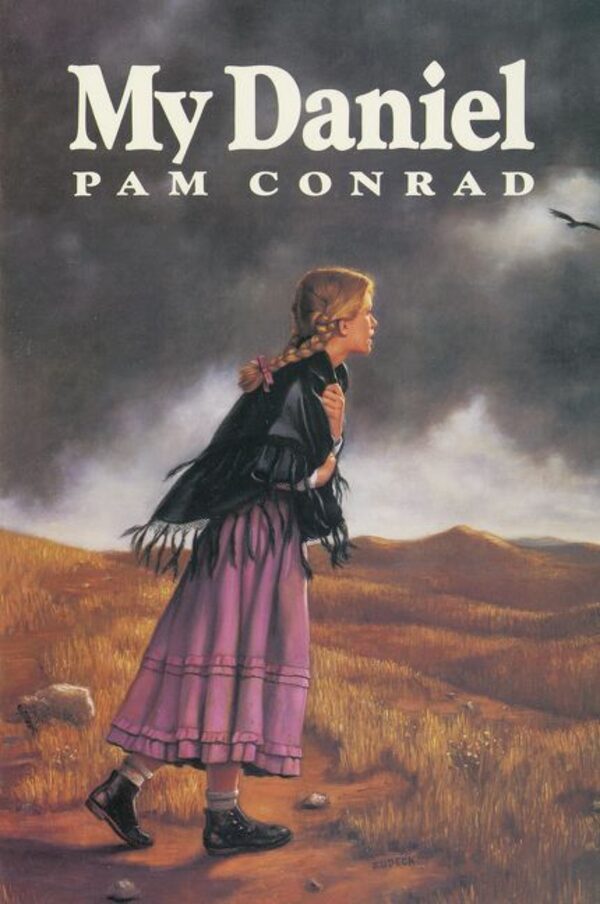
Emma Hooper Our Homesick Songs is longlisted for the Giller Prize.

In a lyrical ode to the country’s easternmost province, Emma Hooper’s Giller-longlisted Our Homesick Songs (Hamish Hamilton) takes readers back to the early 1990s and the beginning of the cod moratorium in Newfoundland.
Times are tough and 10-year-old Finn finds people are disappearing. His hometown has become a ghost town. But soon his parents vanish – and then his dear teen sister, Cora, too, and somehow he must bring them all back.
Here, the Edmonton-born, Bath, England-based writer, teacher and musician shares the most memorable books from her life.
What did you read as a kid?
Everything. The good stuff, the terrible stuff and everything in-between. The highlight of my summers was always the library summer reading programs where you’d get a little passport to collect stamps representing the number of books you’d read. At the end of the summer you’d turn in your passport and, if you had enough stamps, get a pencil that said I’M PRETTY GREAT AT READING or BOOKS ARE GRAND, or something like that. It was very effective on me; I respond well to material bribery.

These programs (and these pencils) are probably the primary reason I grew up reading and, then, writing.
But, even before that, I had a tape of Lewis Carroll’s Alice’s Adventures in Wonderland that I would listen to every night before bed. Even though I didn’t understand half of it and was scared of some of it too (Jabberwocky!), by the time I was five years old and started school I had big chunks memorized and would recite them to grandparents and aunts and uncles (for treats, I assume). Rhythms such as, “How doth the little crocodile/Improve his shining tail" and "Jam tomorrow/Jam yesterday/But never jam today” were beautiful and comforting and magical.
This was about when I started music lessons and the two twisted into one in my young brain, the magic music of words and the magic language of music.
What did you read in grade school?

One of the first “big kid” books I remember reading was My Daniel by Pam Conrad. It had dinosaurs and a familiar prairie setting and tragedy. I remember crying and crying as I read and loving it. My first experience of fiction-triggered catharsis, I found this emotional power that books held (or could hold) both fascinating and addictive.
What did you read in high school?
I enjoyed pretty much everything we read in my high school English classes, but I especially loved Pride and Prejudice by Jane Austen.
I have an uncle who’s quite an Austen fan and, beyond what we covered in school, he introduced me to the idea of her work as cutting and hilarious, social commentary. There was a theatre across the field from my school and their costume department lent me and a couple friends some 18th-century garb so we could act out key Austen scenes for our school’s open house night. No teacher arranged this – I think we actually interrupted and disrupted the planned program – we just decided to do it ourselves, because we were that into Austen.
What did you read in university?

I met Dave Eggers at university. Sadly (very, very sadly, for my 19-year-old self), not in person, but through A Heartbreaking Work of Staggering Genius, which I read for a non-fiction class I took in first year on a whim. This book took everything I knew about structure, character, non-fiction and narrative voice and turned it on its head; I was besotted.
A decade later, when I taught a non-fiction class of my own here in England, I had my students read this book. Half of them always loved it and half of them always hated it, which meant, either way, that it affected them, so I was happy. It made for excellent, highly emotional in-class debates.
What are you reading now?
My pick of the year, so far, is The Western Wind by Samantha Harvey, a sort of backward murder-mystery set in 15th-century England. On top of being moving, funny, fascinating and a bit scary, it’s just so, so clever. It makes me excited about both reading and writing, and is a nice reminder that historical fiction can feel incredibly fresh and relevant.
Editor’s note: An earlier version of this story incorrectly referred to C. S. Lewis as the author of Alice's Adventures in Wonderland. In fact, it was written by Lewis Carroll. This version has been updated.